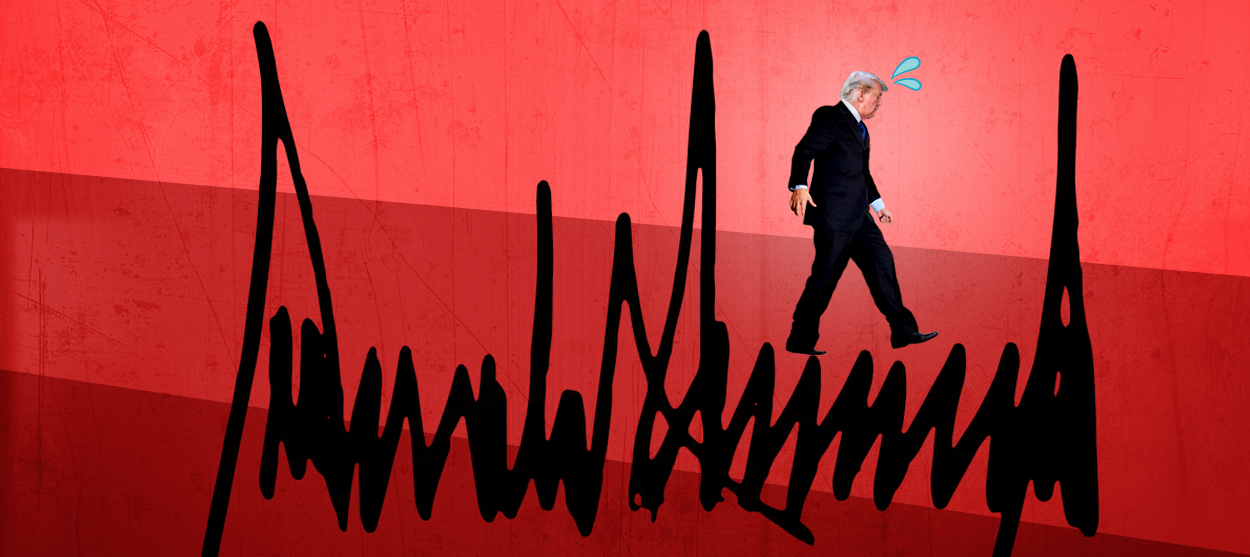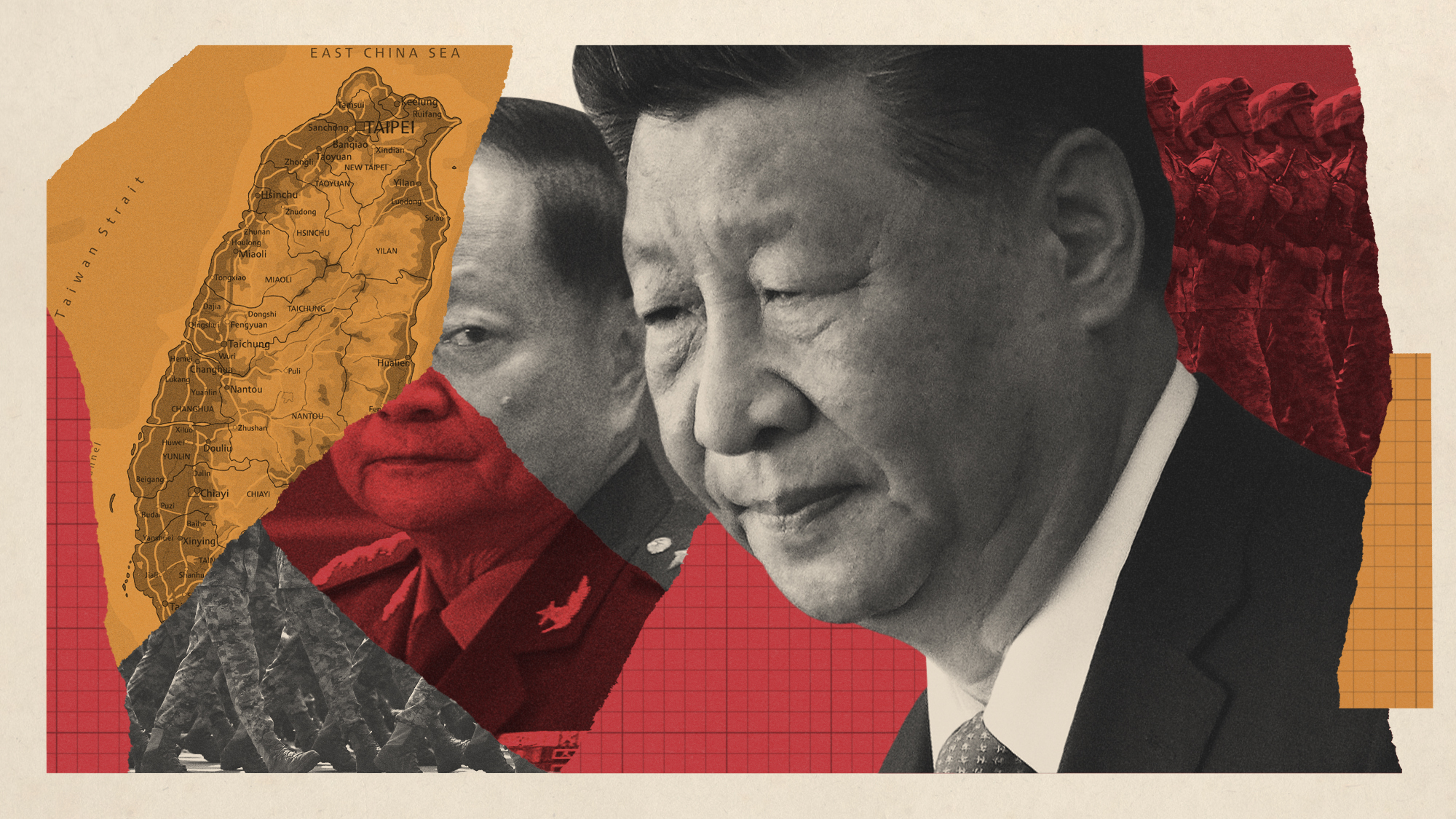Escalating the trade war is risky for Trump. Signing a deal with China may be even riskier.
Whoever said trade wars were good and easy to win?


A free daily email with the biggest news stories of the day – and the best features from TheWeek.com
You are now subscribed
Your newsletter sign-up was successful
President Trump in October announced a "phase one" trade deal with China, but the specifics still needed hammering out. And the hammering continues. Actually, it may continue for some time.
Trump now says he's prepared to wait until after next year's U.S. elections before finalizing a deal with Beijing, if ever. As the president told reporters on Tuesday in London, where he is attending the NATO summit, "The China trade deal is dependent on one thing: Do I want to make it?"
Maybe Trump doesn't. Or maybe he's just not sure. Now there's no doubt that Wall Street would love a pause in the U.S.-China trade war. Most bullish forecasts for next year assume just such a scenario. For example: Goldman Sachs expects economic growth to "accelerate modestly ... for several reasons. First, the drag from the trade war should fade absent further escalation." The president surely wants a buoyant stock market in 2020 along with a steady, even strengthening, economy.
The Week
Escape your echo chamber. Get the facts behind the news, plus analysis from multiple perspectives.

Sign up for The Week's Free Newsletters
From our morning news briefing to a weekly Good News Newsletter, get the best of The Week delivered directly to your inbox.
From our morning news briefing to a weekly Good News Newsletter, get the best of The Week delivered directly to your inbox.
But signing a deal isn't without political risk for Trump. Media reports on its outline suggest China would agree to buy more U.S. farm goods, do more to protect U.S. intellectual property, refrain from currency manipulation, and further open its financial sector to American firms. Overall, it sounds like the sort of deal Washington might sign with a rising economic power and competitor that's transitioning to a more market-based economy.
But fewer and fewer people in Washington still see China in those benign terms, especially in Trump's own party. Sen. Marco Rubio (R-Fla.) warns of China's "long-term plan to supplant the United States of America as the world's dominant political, military, and economic power." Sen. Tom Cotton (R-Ark.) says Chinese President Xi Jinping is establishing a "new evil empire" and Washington should stop American companies from helping him. The conservative "Committee on the Present Danger: China" explains that "as with the Soviet Union in the past, Communist China represents an existential and ideological threat to the United States and to the idea of freedom." Indeed, America is "in the race of our lives" against China, according to Fox News host Tucker Carlson.
But if China really is so dangerous, why would Trump want to make American farmers more dependent on it? Why would Trump want China to make itself more hospitable to American business and investment? Why would Trump treat Chinese tech companies as bargaining chips to increase purchases of America-grown sorghum rather than as the nefarious national champions of a hostile power?
These are exactly the kind of questions Trump will get asked if he signs a deal that fails to treat China as a serious geopolitical threat and not just an economic rival — which almost certainly describes any realistic U.S.-China agreement. China isn't going to abandon its top-down, state capitalist model, something Beijing views as both economically successful and a key part of maintaining the Communist Party's hold on power. Moreover, there's little evidence Trump strategically sees the two nations as a fighting a long, multifront war for 21st century global supremacy. If he did, he would be bracing the American public for years of conflict. After all, the Soviet Union wasn't defeated by a clever deal but rather by decades of Western military, economic, and ideological pressure at great financial and human cost. While his fellow Republicans call Xi a dictator running an evil empire, Trump calls him "a king" with whom he gets along "great."
A free daily email with the biggest news stories of the day – and the best features from TheWeek.com
So it's not inconceivable that some high-profile Republicans bash a Trump trade deal. At least in foreign policy, GOPers have shown a degree of independence from the president, such as when they criticized his abandonment of the Kurds and backed legislation supporting Hong Kong's pro-democracy protesters. A deal would also give the Democratic 2020 candidates an opportunity to out-hawk Trump on perhaps his signature issue by finally advocating a comprehensive action plan to contain China.
So Trump's conundrum: If he signs a deal, he could look out-of-step, even dovish on China, hurting his re-election chances. And if he doesn't sign a deal, markets and the economy could weaken, also hurting his re-election chances.
Hey, no one ever said trade wars were good and easy to win. Other than Trump, of course.
Want more essential commentary and analysis like this delivered straight to your inbox? Sign up for The Week's "Today's best articles" newsletter here.
James Pethokoukis is the DeWitt Wallace Fellow at the American Enterprise Institute where he runs the AEIdeas blog. He has also written for The New York Times, National Review, Commentary, The Weekly Standard, and other places.
-
 The ‘ravenous’ demand for Cornish minerals
The ‘ravenous’ demand for Cornish mineralsUnder the Radar Growing need for critical minerals to power tech has intensified ‘appetite’ for lithium, which could be a ‘huge boon’ for local economy
-
 Why are election experts taking Trump’s midterm threats seriously?
Why are election experts taking Trump’s midterm threats seriously?IN THE SPOTLIGHT As the president muses about polling place deployments and a centralized electoral system aimed at one-party control, lawmakers are taking this administration at its word
-
 ‘Restaurateurs have become millionaires’
‘Restaurateurs have become millionaires’Instant Opinion Opinion, comment and editorials of the day
-
 The UK expands its Hong Kong visa scheme
The UK expands its Hong Kong visa schemeThe Explainer Around 26,000 additional arrivals expected in the UK as government widens eligibility in response to crackdown on rights in former colony
-
 ‘Hong Kong is stable because it has been muzzled’
‘Hong Kong is stable because it has been muzzled’Instant Opinion Opinion, comment and editorials of the day
-
 What do Xi’s military purges mean for Taiwan?
What do Xi’s military purges mean for Taiwan?Today’s Big Question Analysts say China’s leader is still focused on reunification
-
 What is at stake for Starmer in China?
What is at stake for Starmer in China?Today’s Big Question The British PM will have to ‘play it tough’ to achieve ‘substantive’ outcomes, while China looks to draw Britain away from US influence
-
 ‘It’s good for the animals, their humans — and the veterinarians themselves’
‘It’s good for the animals, their humans — and the veterinarians themselves’Instant Opinion Opinion, comment and editorials of the day
-
 The billionaires’ wealth tax: a catastrophe for California?
The billionaires’ wealth tax: a catastrophe for California?Talking Point Peter Thiel and Larry Page preparing to change state residency
-
 What is China doing in Latin America?
What is China doing in Latin America?Today’s Big Question Beijing offers itself as an alternative to US dominance
-
 Bari Weiss’ ‘60 Minutes’ scandal is about more than one report
Bari Weiss’ ‘60 Minutes’ scandal is about more than one reportIN THE SPOTLIGHT By blocking an approved segment on a controversial prison holding US deportees in El Salvador, the editor-in-chief of CBS News has become the main story
